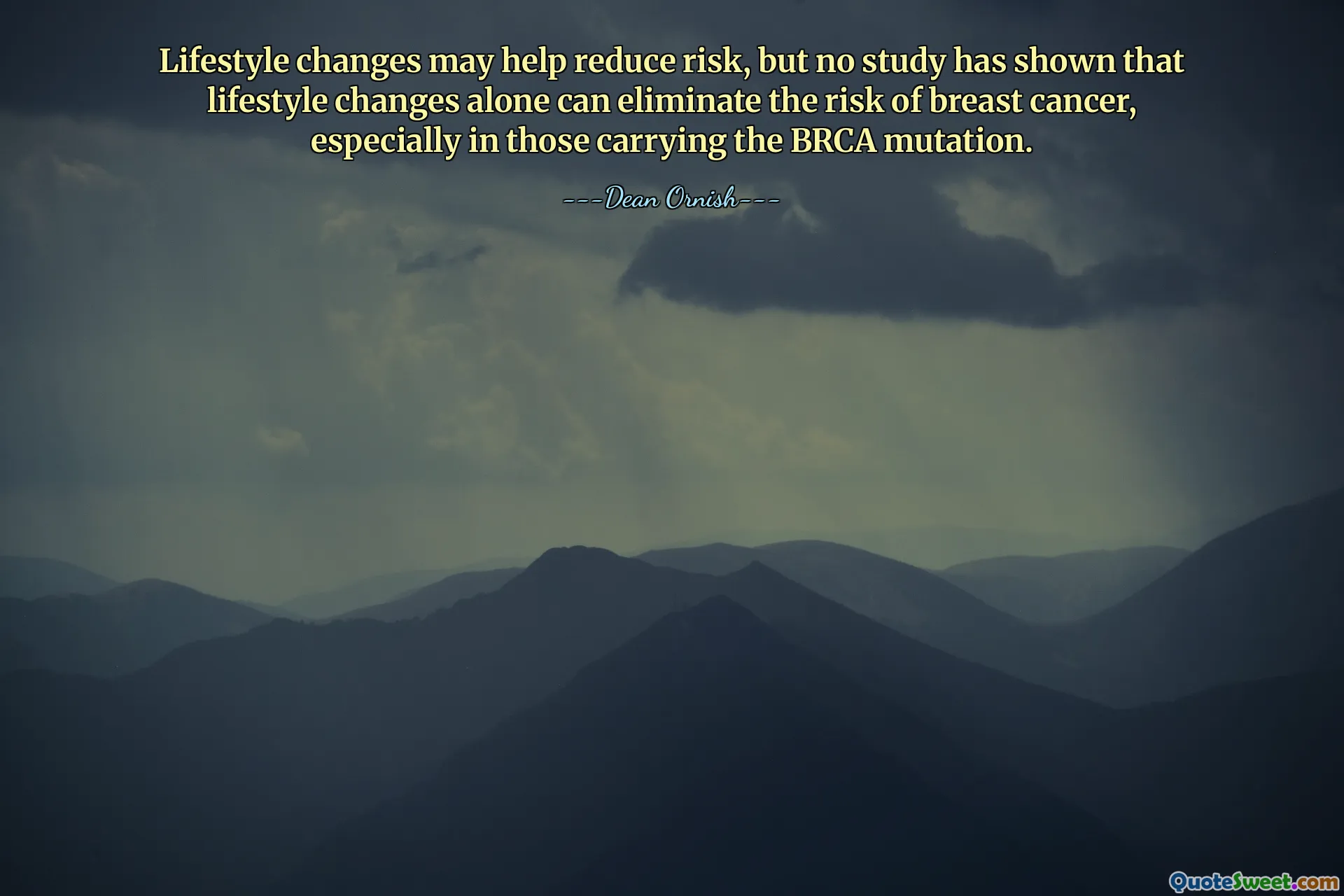
Lifestyle changes may help reduce risk, but no study has shown that lifestyle changes alone can eliminate the risk of breast cancer, especially in those carrying the BRCA mutation.
This quote highlights an important reality in the management and prevention of breast cancer: while making lifestyle changes such as improving diet, increasing physical activity, and avoiding harmful habits can play a crucial role in reducing risk, they are not a guarantee against the disease. Particularly for individuals with genetic predispositions—like carriers of the BRCA mutation—lifestyle adjustments are only part of a broader strategy required to manage risk effectively.
The presence of the BRCA mutation significantly elevates the likelihood of developing breast cancer, underscoring the importance of combining genetic understanding with lifestyle interventions. This recognition challenges any simplistic notion that health outcomes can be fully controlled by personal habits alone. Instead, it advocates for a nuanced approach that integrates genetics, lifestyle, medical supervision, and perhaps preventive treatments according to an individual's risk profile.
From a broader perspective, this statement calls for a balanced view on health empowerment. It encourages people to take proactive steps for their own well-being while also recognizing the limits of their control. It alleviates any false sense of security that lifestyle alone can eliminate serious health risks in genetically predisposed populations. Moreover, it underscores the importance of ongoing research to continue exploring effective strategies, blending lifestyle, medical, and technological advances for comprehensive care.
In essence, this perspective encourages a compassionate, scientifically informed understanding of disease prevention that respects the complex interplay of genetics and lifestyle. It reassures individuals that while not all circumstances are within one's control, informed choices remain a vital part of health management.









